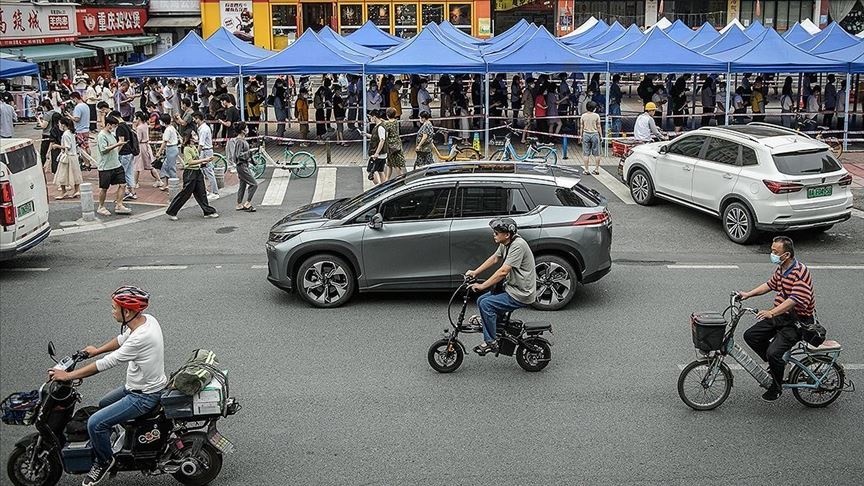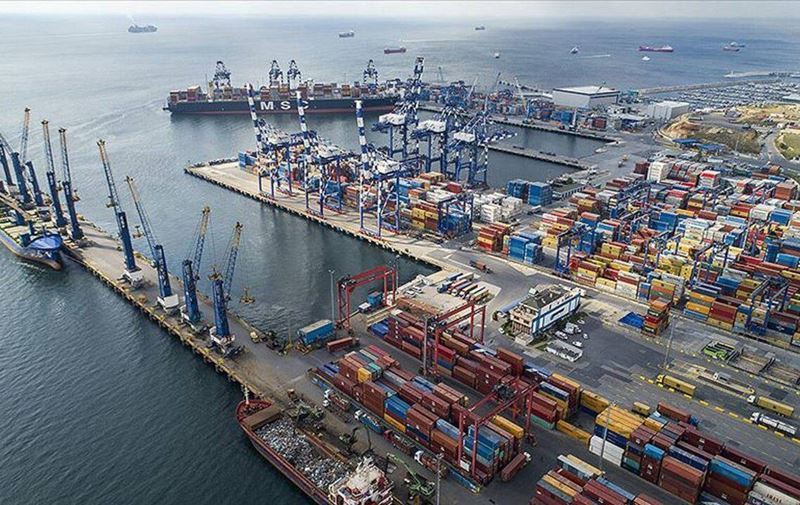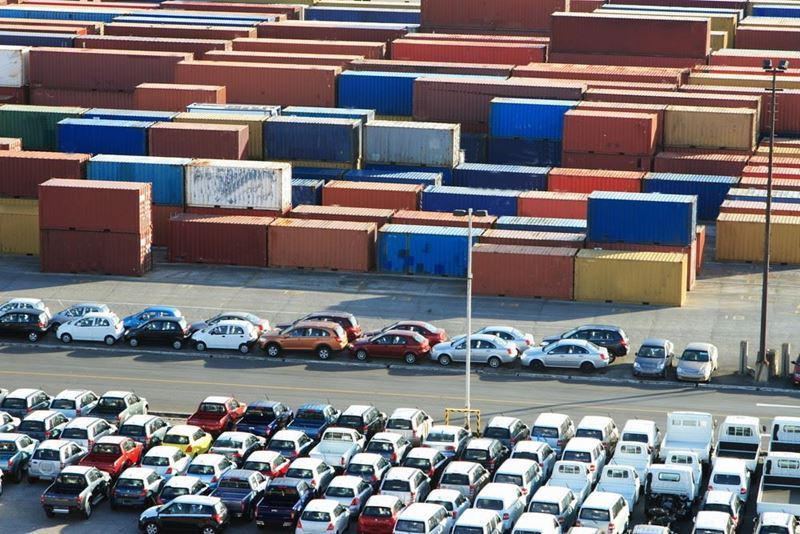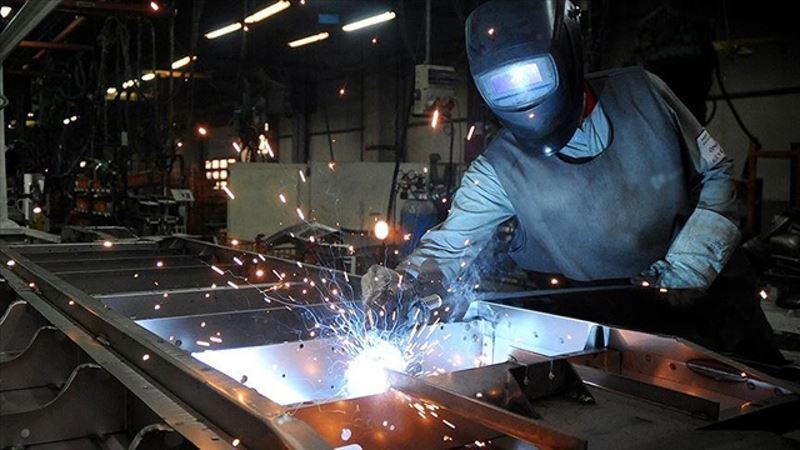The measures taken in China to control the Kovid-19 outbreaks triggered by the Omicron variant, especially in Shanghai, the country's largest city, adversely affect the economy.
According to the compiled data, the slowing effect of the closure measures and restrictions implemented in cities with large populations and key industries and business lines since the beginning of the year reflected on macroeconomic indicators, while efficiency losses were observed in critical sectors.
Industrial production, retail sales, automobile sales, real estate investments, economic activities in the manufacturing and services sector and the rate of increase in exports decreased in China in April.
Economic performance, measured in many fields, fell to its lowest levels since the first months of the Kovid-19 outbreak, when the first cases were seen in Wuhan, China.
Sharp decline in production and consumption
Due to the restrictions, industrial production and retail sales in the country recorded their sharpest declines since the beginning of the epidemic.
According to the data of the National Bureau of Statistics (UIB), industrial production, which calculates the value-added output of industrial enterprises with an annual turnover of more than 20 million yuan (about $ 2.94 million), decreased by 2.9 percent year-on-year in April. This was the sharpest drop since February 2020, when the effects on production were first felt at the beginning of the epidemic.
Industrial production increased by 5 percent in March. The Manufacturing Industry Purchasing Managers Index (PMI), which measures economic activity in the manufacturing sector in China, decreased by 2.1 points to 47.4 in April. This was the lowest level recorded since February 2020.
Values above 50 in the PMI index indicate an increase in economic activities, while values below indicate a decrease.
Retail sales
Restrictive measures implemented in many cities, especially Shanghai, with a population of over 26 million, also negatively affected consumption.
Retail sales decreased by 11.1% in April compared to the same period last year.
The decrease was the steepest decrease recorded after the 15.8 percent drop in March 2020, when the first effects of the Kovid-19 outbreak were felt.
Retail sales fell 3.5 percent year-on-year in March, the first drop since June 2020.
automobile sales
Auto sales fell to 1.18 million units in April, down 47.6 percent compared to last year, according to data from the China Automobile Manufacturers Association (CAAM).
The volume of sales decreased by 12 percent in the first 4 months of the year compared to the same period of the previous year.
The number of cars put on the market has also decreased due to the cessation of production in the factories and the problems experienced in the supply of parts.
According to data from the China Automobile Dealers Association (CADA), the number of cars produced decreased by 41.1 percent in April compared to last year.
Fixed capital and real estate investments
Fixed capital investments, including investments in infrastructure, real estate, machinery and equipment, increased by 6.8 percent in the first 4 months. The increase was below the 9.3 percent increase in the first quarter.
On the other hand, investments in the real estate sector decreased by 2.7 percent in the first 4 months of the year compared to the same period of the previous year. This is the first annual reduction since the outbreak originated in Wuhan.
Real estate investments decreased by 3.3 percent in the first 4 months of 2020.
Loss of efficiency in the services sector
It was reported that economic activity in the services sector in China fell to the lowest level since February 2020.
Economy and financial news service Caixin's China General Services Business Efficiency Index fell 5.8 points to 36.2 in April.
The index, which fell to 26.5 in February 2020, when the effects of the first wave of Kovid-19 were felt, saw the lowest level recorded since then.
Mobile taxi services decreased
The closure measures in the cities also affected urban transportation. In China, the number of taxi services made with a call made via the mobile application decreased by 11.6 percent in April.
According to data from the Ministry of Transport of China, taxi calls made by mobile phones via mobile applications in the country decreased by 11.6 percent compared to the previous month and decreased to 476 million in April.
In China, 270 companies offer mobile taxi services through the mobile apps of Didi, Baidu and Alibaba. It is almost impossible to find a taxi on the street without using mobile phone applications in the country. In addition to self-employed drivers by registering their private vehicles with companies that provide taxi services, official taxi companies of states and cities also operate online.
Export growth is at the lowest level of the last 22 months in April
Exports in China recorded the lowest annual growth in April since June 2020.
According to the data of the General Administration of Customs, in April, exports increased by 3.9 percent compared to the same period of the previous year and reached 273.62 billion dollars, while imports decreased by 1 per thousand and remained at 222.5 billion dollars.
The rate of increase in exports decreased by 73.4 percent compared to the previous month. While China's exports increased by 14.7 percent in March, its imports decreased by 1 per thousand.
The effect of the external conditions created by the Russia-Ukraine War, as well as the restrictions to control the epidemic, was evident in the decrease in the increase in exports.
Inflation
In China, consumer prices rose 2.1 percent year-on-year, and producer prices rose 8 percent in April.
While there was no significant change in the increase in the PPI, where the ex-factory prices of manufacturing products are calculated, the increase in the CPI, which is considered the main indicator of inflation, was 2.1 percent in April, while it was 1.5 percent in March.
Food price inflation was 1.9 percent and non-food inflation was 2.2 percent.
The rise in consumer prices was affected by the disruptions caused by their restrictions in supply chains.
Unemployment
The unemployment rate in cities in China increased by 0.3 percent in April compared to the previous month and reached 6.1 percent.
According to UIB data, 4.06 million jobs were created in the first 4 months of the year; It was reported that the unemployment rate in the country's 31 largest cities rose to 6.7 percent.
China aims to create more than 11 million new jobs in cities in 2022, keeping the unemployment rate below its target annual growth rate of "around 5.5 percent".
Omicron cases turned into a test for the 'zero case' strategy
In the last 6 months in China, mass tests, curfews, travel restrictions and quarantine measures have hit economic activities as well as social life due to epidemics in metropolitan cities such as Shanghai, Beijing and Xinjin, where the population is dense.
The picture revealed by the highly contagious Omicron variant has turned into a test for China's "zero case" strategy against Kovid-19.
Strategy aimed at suppressing and cutting the chain of transmission where Kovid-19 cases occur; It requires strict and wide-ranging measures, such as quarantine, travel restrictions, mass testing, and the restriction of the activities of businesses in the manufacturing and services sector. The measures occasionally cause controversy in terms of their interference in the ordinary course of life and their economic cost.
It remains unclear how China will adapt its combat strategy over time, while other countries have largely removed their epidemic protection measures against Kovid-19 and normalized.









Comments
No comment yet.